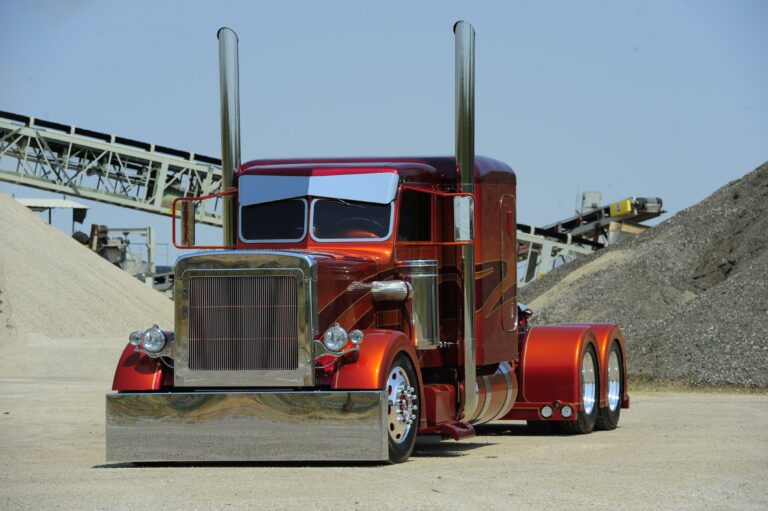Best Brand New Cars: Your Ultimate Guide to Finding the Perfect Ride
Best Brand New Cars: Your Ultimate Guide to Finding the Perfect Ride cars.truckstrend.com
The allure of a brand new car is undeniable: the pristine interior, the latest technology, the peace of mind of a full warranty, and that unmistakable "new car smell." But with an overwhelming array of models, features, and price points, defining the "best brand new cars" isn’t about a single definitive list. Instead, it’s about identifying the vehicles that best align with your specific needs, lifestyle, and budget. This comprehensive guide will help you navigate the exciting journey of selecting and acquiring your ideal new car, transforming a potentially daunting task into an informed and enjoyable experience.
Defining "Best" for You: Key Considerations Before You Buy
Best Brand New Cars: Your Ultimate Guide to Finding the Perfect Ride
Before diving into specific models, it’s crucial to establish what "best" means in your personal context. A high-performance sports car might be "best" for an enthusiast, while a fuel-efficient compact car might be ideal for a city dweller. Consider the following critical factors:
- Budget & Total Cost of Ownership (TCO): Your budget isn’t just the purchase price. Factor in financing costs, insurance premiums, fuel efficiency (or electricity costs for EVs), routine maintenance, and potential depreciation. A seemingly cheaper car upfront might cost more over its lifespan due to poor fuel economy or high maintenance.
- Lifestyle & Needs:
- Commute: Long highway drives demand comfort and good fuel economy; city driving benefits from maneuverability and compact size.
- Family Size: How many passengers do you regularly carry? Do you need space for car seats, strollers, or sports equipment?
- Cargo Capacity: Do you frequently haul gear, groceries, or luggage? Consider trunk space, folding seats, and roof rack options.
- Driving Conditions: Do you encounter snow, dirt roads, or off-road trails? All-wheel drive (AWD) or higher ground clearance might be necessary.

- Fuel Type & Efficiency:
- Internal Combustion Engine (ICE): Traditional gasoline or diesel. Widely available, but fuel costs can add up.
- Hybrid: Combines a gasoline engine with an electric motor for improved fuel economy, especially in city driving.
- Plug-in Hybrid Electric Vehicle (PHEV): Offers a limited all-electric range before switching to hybrid mode, allowing for short commutes on electricity alone.
- Electric Vehicle (EV): Zero tailpipe emissions, lower "fuel" costs (electricity), quieter ride, and often strong acceleration. Requires charging infrastructure at home or public stations.
- Safety Features & Technology: Modern cars boast an impressive array of advanced driver-assistance systems (ADAS), including adaptive cruise control, lane-keeping assist, blind-spot monitoring, and automatic emergency braking. Research crash test ratings (e.g., NHTSA, IIHS) and evaluate the infotainment system’s ease of use, connectivity options (Apple CarPlay, Android Auto), and navigation capabilities.
- Reliability & Resale Value: Some brands and models consistently rank higher in reliability studies, leading to fewer unexpected repairs down the line. A strong resale value means you’ll recoup more of your investment if you decide to sell or trade in the car later.
- Driving Dynamics & Comfort: Test driving is paramount. Pay attention to steering feel, suspension comfort, acceleration, braking, and road noise. Does the driver’s seat offer adequate support for long journeys? Is visibility good?
Top Contenders Across Key Categories: Examples of Excellence
While "best" is subjective, certain models consistently excel within their respective segments due to their blend of features, performance, reliability, and value. Here are some standout examples across popular categories:
-
Compact & Mid-Size Sedans: The Practical All-Rounders
- Honda Civic: Known for its sporty handling, excellent fuel economy, and spacious interior for its class. A perennial favorite.
- Toyota Corolla: Legendary for its reliability, strong fuel efficiency, and a comfortable, if somewhat conservative, ride.
- Toyota Camry: A benchmark for mid-size sedans, offering a smooth ride, ample space, impressive reliability, and a highly efficient hybrid option.
- Hyundai Elantra/Sonata: Offer compelling value, stylish designs, and a wealth of standard features, often with strong warranty coverage.
-
Compact & Mid-Size SUVs: Versatility Reigns Supreme
- Toyota RAV4: Consistently one of the best-selling SUVs, lauded for its reliability, spacious interior, and available hybrid/PHEV options.
- Honda CR-V: Known for its refined interior, comfortable ride, and practical cargo space. Also offers an efficient hybrid powertrain.
- Hyundai Tucson/Kia Sportage: These Korean siblings impress with bold styling, feature-rich interiors, and competitive pricing, including hybrid and PHEV variants.
- Subaru Forester: A go-to choice for those seeking standard all-wheel drive, excellent visibility, and a reputation for safety and outdoor capability.
-
Electric Vehicles (EVs): The Future is Now
- Tesla Model 3/Y: Dominant in the EV market, offering impressive range, rapid acceleration, cutting-edge technology, and a robust charging network.
- Hyundai Ioniq 5/Kia EV6: Stand out with unique, futuristic designs, ultra-fast charging capabilities, and spacious, innovative interiors.
- Ford Mustang Mach-E: Blends iconic Mustang styling cues with electric performance, offering a compelling package for those transitioning to EV.
-
Luxury Vehicles: Performance, Prestige, and Pampering
- BMW 3 Series: The quintessential sport sedan, offering a sublime balance of driving dynamics, sophisticated technology, and premium materials.
- Mercedes-Benz C-Class: Delivers a refined, comfortable ride with a luxurious interior and cutting-edge infotainment.
- Lexus ES: Focuses on unparalleled comfort, whisper-quiet operation, and bulletproof reliability, often at a more accessible luxury price point.
-
Family Haulers: Minivans & Large SUVs
- Honda Odyssey: The king of practicality, offering unmatched passenger and cargo versatility, clever features, and a comfortable ride for large families.
- Kia Carnival: A "multi-purpose vehicle" that blends minivan utility with SUV styling, offering a luxurious interior and strong value.
- Chevrolet Tahoe/Suburban (and GMC Yukon/Yukon XL): Full-size SUVs that provide immense passenger and cargo capacity, strong towing capabilities, and a commanding presence.
-
Pickup Trucks: Power, Utility, and Versatility
- Ford F-150: America’s best-selling vehicle for decades, renowned for its diverse engine options (including hybrid and electric F-150 Lightning), towing capacity, and innovative features.
- Ram 1500: Praised for its comfortable ride, luxurious interior options, and innovative storage solutions.
- Chevrolet Silverado 1500 (and GMC Sierra 1500): Robust and reliable workhorses, offering strong towing and hauling capabilities with a wide range of configurations.
The Undeniable Benefits of Buying Brand New
Opting for a brand new vehicle offers several compelling advantages that often outweigh the initial higher cost compared to a used car:
- Full Manufacturer Warranty: New cars come with comprehensive bumper-to-bumper and powertrain warranties, covering repairs for a specified period or mileage. This provides immense peace of mind.
- Latest Technology & Safety: You get the most current infotainment systems, connectivity features, and cutting-edge safety technologies (ADAS), which are constantly evolving.
- Customization & Choice: You can order your car exactly how you want it – choosing the trim level, color, options, and packages directly from the factory.
- Peace of Mind & No History: There are no hidden issues from previous owners, no accident history to worry about, and no lingering maintenance concerns. You know the car’s complete history from day one.
- Enhanced Reliability: Modern manufacturing processes mean new cars are generally more reliable than ever, reducing the likelihood of unexpected breakdowns.
- That "New Car Smell": A small, but undeniable, psychological perk!
Navigating the Purchase: Practical Steps to Your New Car
Once you’ve narrowed down your choices, the buying process itself requires strategy:
- Thorough Research & Prioritization: Use online reviews, comparison tools, and consumer reports to dig deep into your preferred models. Prioritize your "must-have" features versus "nice-to-have" ones.
- Test Drives & Multiple Comparisons: Never buy a car without test driving it. Drive different trim levels, and ideally, test drive competitors back-to-back on varied road conditions.
- Financing Options (Loan vs. Lease):
- Buying (Loan): You own the car, build equity, and have no mileage restrictions. Best for long-term ownership.
- Leasing: You essentially rent the car for a set period (e.g., 3 years) with mileage limits. Lower monthly payments and the ability to drive a new car every few years. Ideal if you like frequent upgrades.
- Get pre-approved for a loan from your bank or credit union before visiting the dealership; this gives you negotiating leverage.
- Negotiation Strategies: Research the invoice price (what the dealer paid) vs. MSRP. Be prepared to negotiate the price, focusing on the out-the-door price rather than just the monthly payment. Be firm but polite.
- Understanding the Contract & Maintenance: Read the entire purchase agreement carefully before signing. Understand the warranty terms, scheduled maintenance requirements, and any additional fees.
Important Considerations & Potential Pitfalls
While buying new is exciting, be aware of these potential challenges:
- Depreciation: The Big One: New cars lose a significant portion of their value the moment they’re driven off the lot. This initial depreciation is the biggest financial drawback of buying new.
- Availability & Waitlists: Popular models, especially EVs and certain SUVs, can have long waiting lists due to high demand and supply chain issues. Be prepared for potential delays.
- Hidden Costs: Beyond the sticker price, factor in sales tax, registration fees, dealership documentation fees, and potentially inflated add-ons like extended warranties or paint protection.
- Feature Overload: While technology is great, ensure you’ll actually use the advanced features. Don’t pay extra for gadgets you’ll never touch.
Concluding Summary
Ultimately, the "best brand new car" is a deeply personal choice that perfectly aligns with your budget, lifestyle, and priorities. By thoroughly researching, test driving, and strategically navigating the purchasing process, you can confidently select a vehicle that not only meets your practical needs but also brings you joy and peace of mind for years to come. Embrace the excitement of a fresh start on the road, knowing you’ve made an informed decision on one of life’s significant investments.
Table: Estimated Starting Prices for Best Brand New Cars (Representative Examples)
Please Note: All prices are Estimated Starting Manufacturer’s Suggested Retail Price (MSRP) in USD for base models and can vary significantly based on trim level, optional features, location, dealer incentives, and market conditions. These are provided for general guidance only.
| Car Model | Category | Estimated Starting MSRP (USD) | Key Highlight |
|---|---|---|---|
| Honda Civic | Compact Sedan | $24,000 | Sporty handling, fuel efficiency, practical |
| Toyota Camry | Mid-Size Sedan | $27,000 | Reliability, comfortable ride, efficient hybrid |
| Toyota RAV4 | Compact SUV | $29,000 | Versatile, reliable, popular hybrid option |
| Honda CR-V | Compact SUV | $30,000 | Refined interior, spacious, comfortable |
| Hyundai Tucson | Compact SUV | $28,000 | Bold styling, feature-rich, strong warranty |
| Kia Telluride | Mid-Size/Large SUV | $37,000 | Premium feel, spacious, family-friendly |
| Tesla Model 3 | Electric Sedan | $40,000 | Impressive range, rapid acceleration, tech-forward |
| Hyundai Ioniq 5 | Electric Crossover | $42,000 | Unique design, ultra-fast charging, spacious |
| Ford F-150 | Full-Size Truck | $36,000 | Class-leading towing, diverse powertrains, utility |
| Honda Odyssey | Minivan | $38,000 | Unmatched family versatility, clever features |
| BMW 3 Series | Luxury Compact Sedan | $45,000 | Driving dynamics, sophisticated tech, premium feel |
| Subaru Forester | Compact SUV | $28,000 | Standard AWD, safety, strong visibility |
Frequently Asked Questions (FAQ)
Q1: Is buying a brand new car always better than buying used?
A1: Not always. Buying new offers advantages like warranty and the latest tech, but new cars depreciate quickly. Used cars offer better value for money, but come with potential unknown history and less warranty. Your budget and priorities dictate which is "better" for you.
Q2: How much should I budget for a new car?
A2: Beyond the purchase price, budget for sales tax, registration fees, insurance, and ongoing fuel/maintenance costs. A common rule of thumb is that your total car expenses (payment, insurance, fuel, maintenance) shouldn’t exceed 10-15% of your net monthly income.
Q3: What’s the best time of year to buy a new car?
A3: Generally, the end of the month, quarter, or year are good times. Dealers are often trying to meet sales quotas, which can lead to better deals. Holiday weekends (like Black Friday or Labor Day) and when new model years are released (dealers want to clear out old inventory) are also opportune times.
Q4: Should I lease or buy my new car?
A4: Leasing is often better if you want lower monthly payments, enjoy driving a new car every few years, and don’t drive excessive mileage. Buying (financing) is better if you plan to keep the car for a long time, want to build equity, and have no mileage restrictions.
Q5: How do I negotiate the best price on a new car?
A5: Research the car’s invoice price, get pre-approved for financing before visiting the dealership, focus on the "out-the-door" price, be prepared to walk away, and consider negotiating towards the end of the month or quarter. Don’t be afraid to compare offers from multiple dealerships.
Q6: Are electric cars (EVs) ready for prime time?
A6: Yes, EVs are increasingly viable for many drivers. They offer lower running costs, quiet rides, and strong performance. However, consider your typical daily range, access to home charging, and the availability of public charging infrastructure in your area before making the switch. Range and charging times are continually improving.




